NZIFF 2025 Craccum Coverage | Sex
Where sex is talked to death, gay dreams haunt the suburbs, and David Bowie stares into your soul.
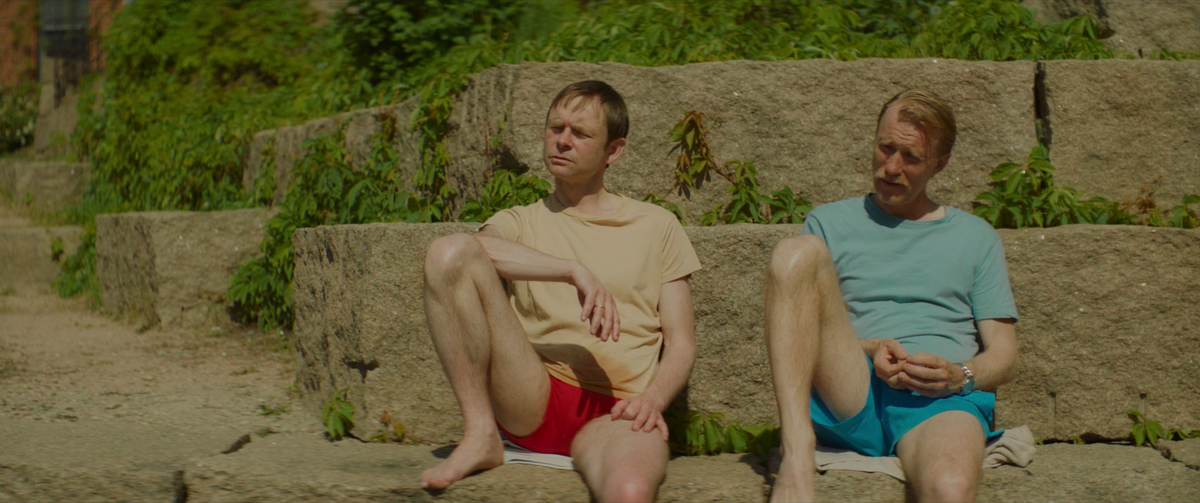
A little aside to begin, this is probably the only film in NZIFF that has premiered in two consecutive years in their programme. Sex screened last year in NZIFF 2024 and is now screening again this year, but this time in conjunction with two other films by Dag Johan Haugerud—Dreams and Love—all comprising his Sex Dreams Love trilogy.
Sex is definitely a wry title choice for a film that's intentionally withholding its eroticism in favour of a more platonic, abstinent approach to the topic. In fact, Haugerud's formal choices go even further, utilising minimalist and ascetic compositions and mise-en-scène that deliberately underlines the film's theatrical realism. You can lob as many names as you want regarding Haugerud's influences and similarities to: Ingmar Bergman, Ryusuke Hamaguchi, Hong Sang-soo, Mike Leigh, Richard Linklater, Éric Rohmer; he's even admitted in interviews that Rohmer had a considerable impact on him as a teenager, and it couldn't be more obvious in Sex, but also conveniently useful as a framework to appreciate Haugerud's variations of the 'Rohmer' technique.
Yes there is Rohmer's fingerprints on every cinematic choice Haugerud makes: naturalistic line deliveries, long back-and-forth dialogues, long uninterrupted takes, conversations attempting to intellectualise and verbally dance around having to express their indescribable, abstract ideas and emotions by critiquing dominant social conventions (typically about love and fidelity) as a scapegoat, concise and unexaggerated framing that emphasise blocking and orientation of cinematic space over expressionistic overtness or psychological proximity, and especially scenes set during break times, off-work hours, holiday seasons, or moments of 'waiting' where there is ample free time to converse (often in seclusion with appropriate privacy).
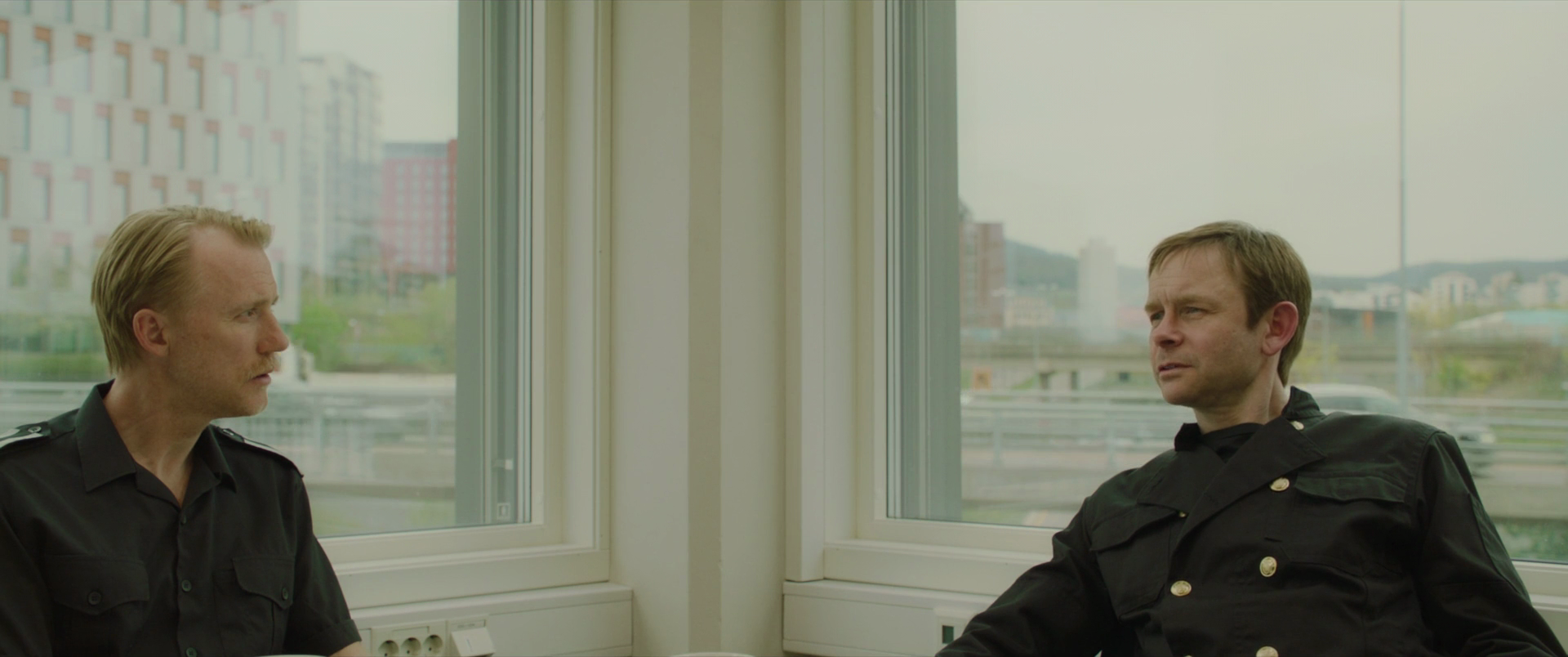
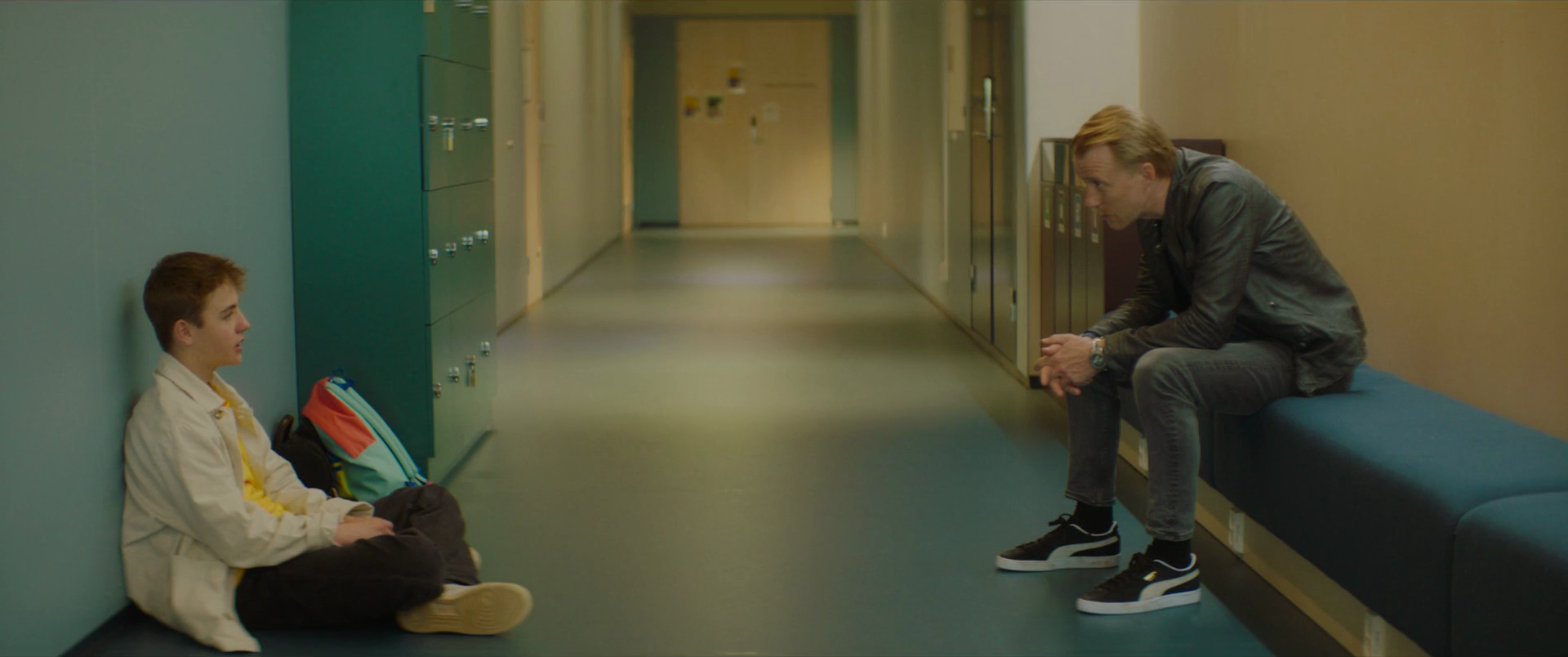
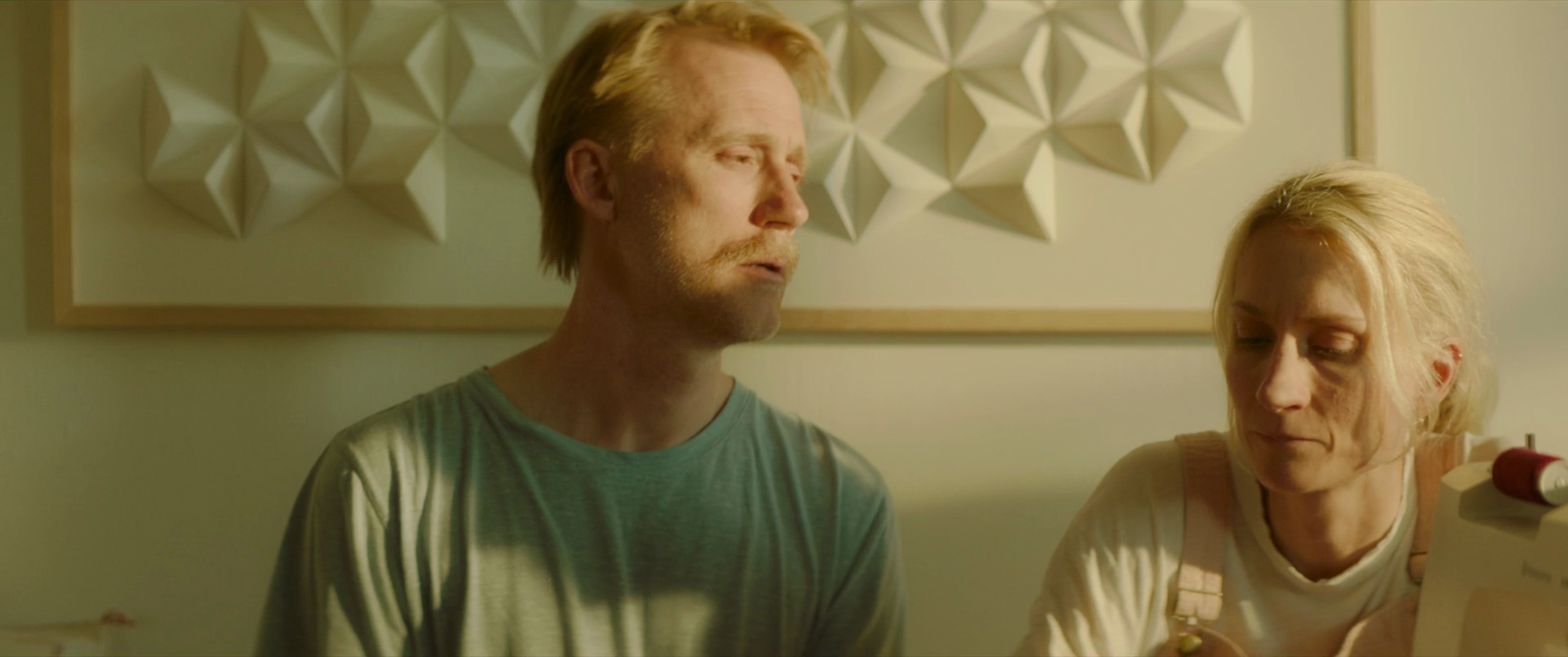
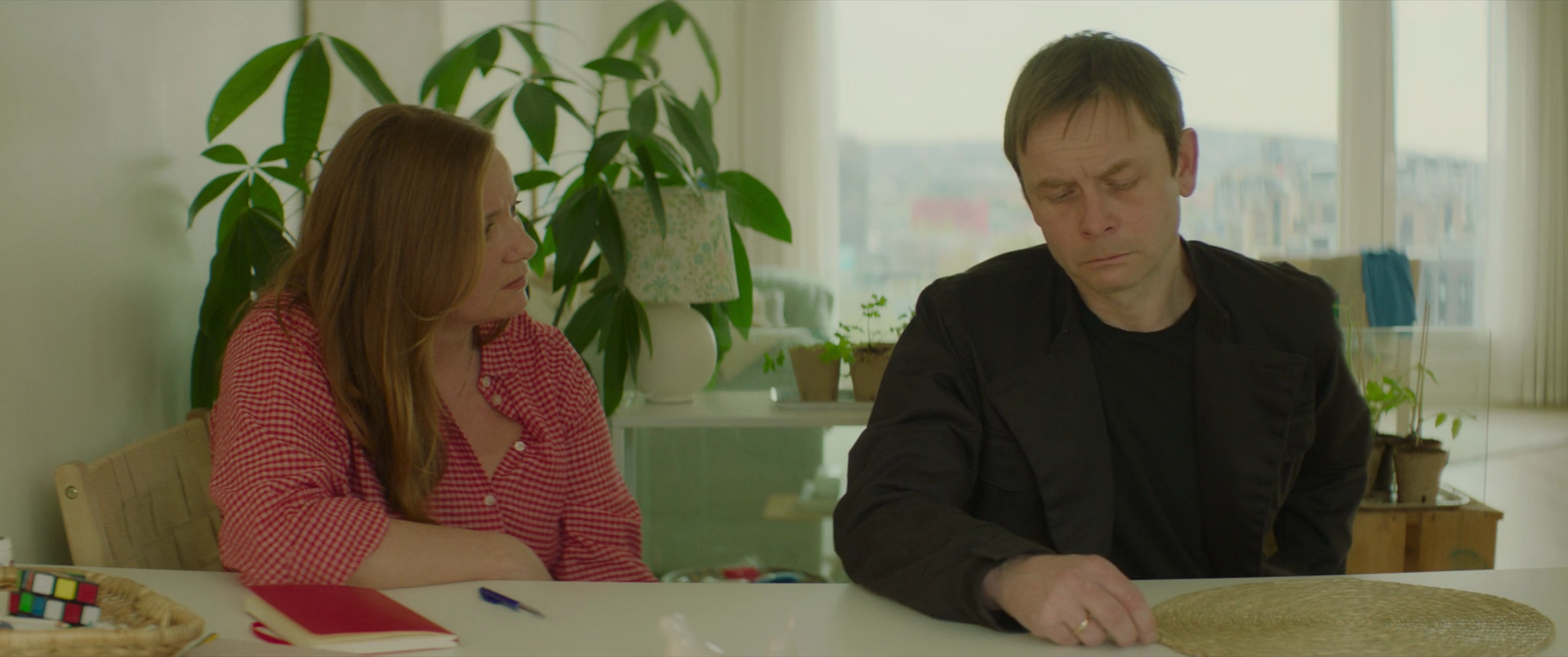
Images courtesy of Motlys.
But crucially, what makes the Rohmer comparison appropriate is the shared understanding and execution of the (mis)articulation of desire and the ongoing contradictions of words and actions. By situating characters within this foundational base of irony—specifically the ironic tension with what 'they say' and what 'they do'—Haugerud and Rohmer are free to oscillate in either comedic resolution of the tension with characters unintentionally acknowledging their discrepancies and moving on, or tragic dissolution with characters suffering in prolonged denial that 1) their hopes and desires fail to meet the constricting standards of their spoken promises or that 2) their placid/hyperbolic verbalisations of what they presume is desirable or self-assuring fall short in actually expressing their complex, tangled emotions that can't be summarised with run-on sentences and endless adjectives and subordinate clauses (i.e. sentences like this one lmao).
In other words, why waste time say lot word when few word do trick? That sounds like the most straightforward solution for mitigating miscommunication. But for the majority of our lives, we will inevitably be put in situations where words will and should fail us, where words become insufficient not just in explaining to another person why we did a particular action, but as the sole means of civilised rationalisation and atonement. Sometimes we don't have an explanation for why we do things or choose to do good or bad. This is the volatile verbal battleground where Haugerud will perform his vivisections on the topic of sexuality, if not its presumptions toward identity and social cohesion.
If there's a common point of contention to this film's aesthetic and subject matter, it would be its perceived slightness and low stakes of watching people essentially just 'talking' for two hours about things and overly-intellectualising the primitive feeling that our ancestors solved and acted upon thousands of years ago by continuing the survival of our species. Sex knows better than to biologically essentialise its discourse around the topic; the inciting incident of this film is about a straight, married man engaging in gay sex with a client and shares this experience with his other straight and married male co-worker who himself shares a dream where David Bowie looks at him as if here were a 'woman'. Despite these ideas of masculinity and queer identity seamlessly intersecting with each other, one gets the impression by the end of the film that these characters are let off the hook too easily. In fact, it's as if Haugerud wants his story and characters and cinematic presentation to be as respectable and kind and welcoming as possible, no extreme camera angles, no explosive outbursts of emotion, just the safety and security of listening and being listened to with frequent ambient disco jazz interludes.
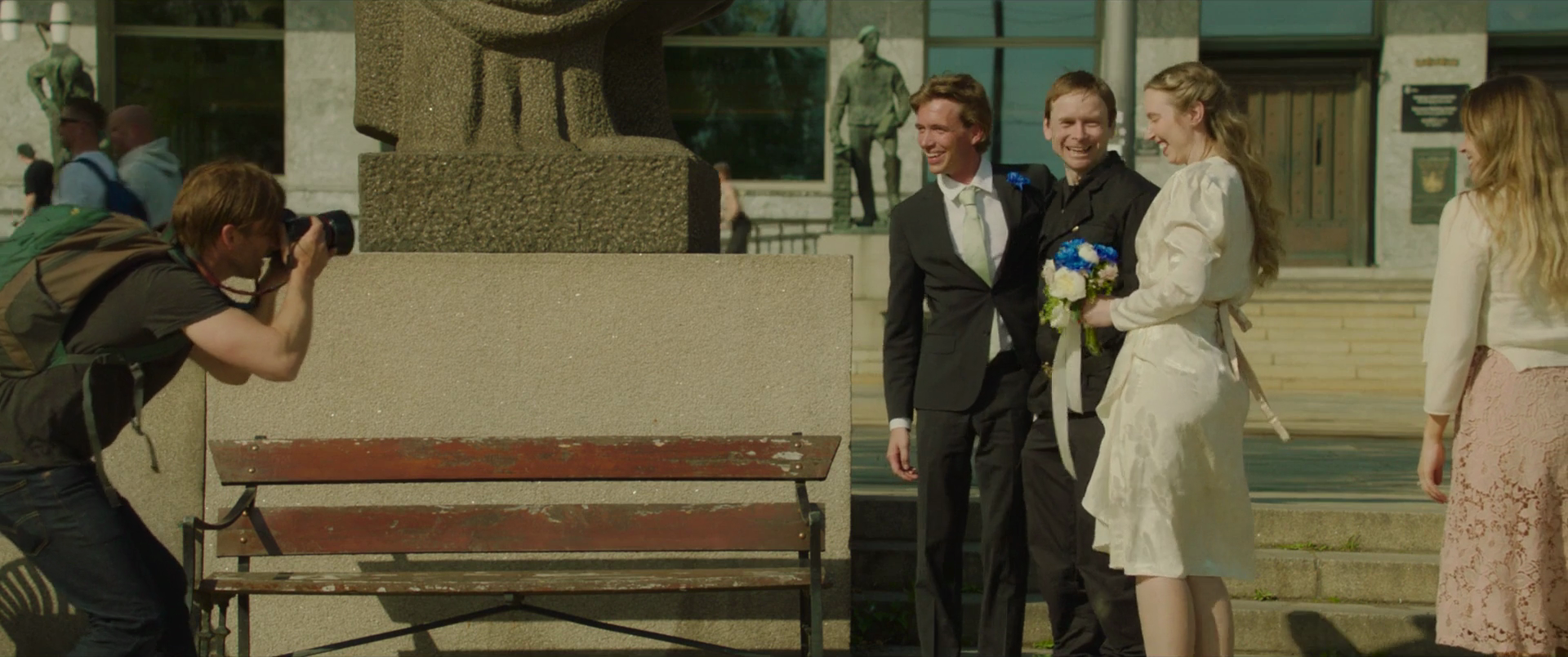
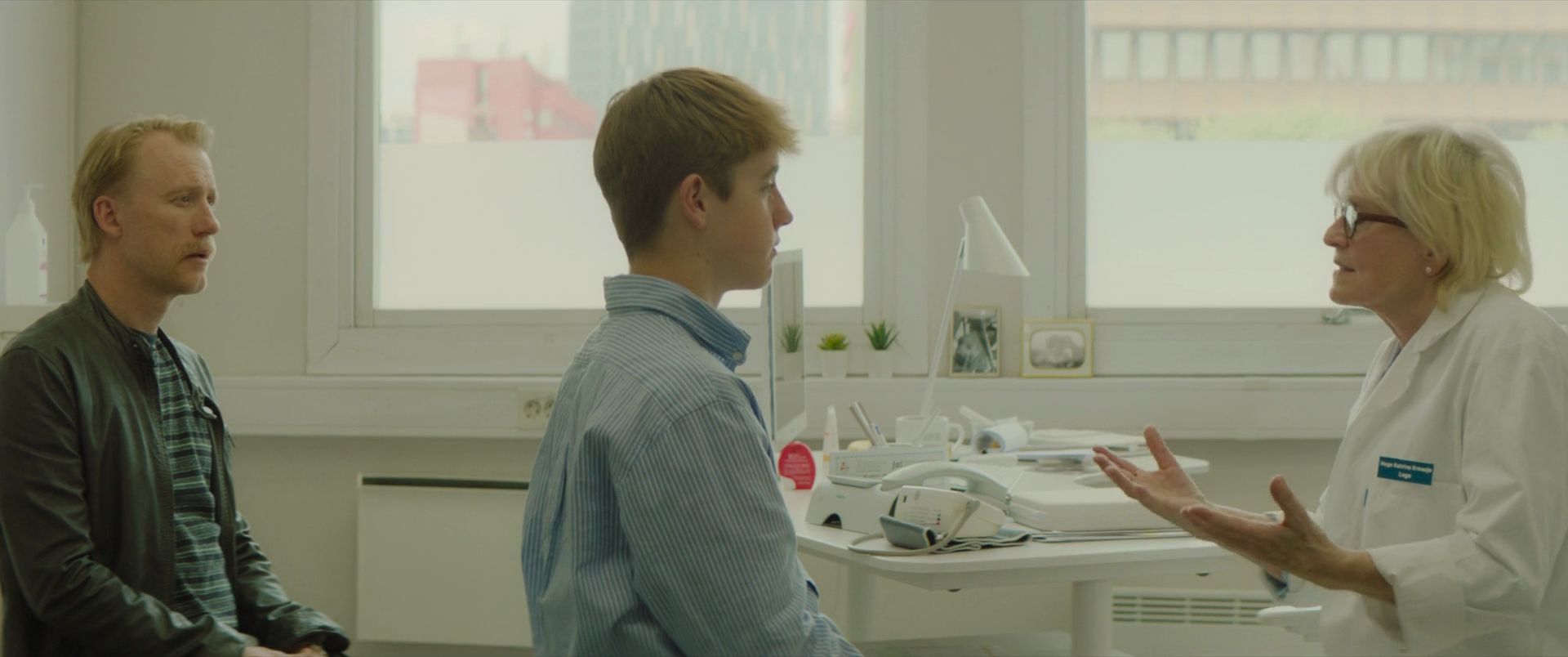
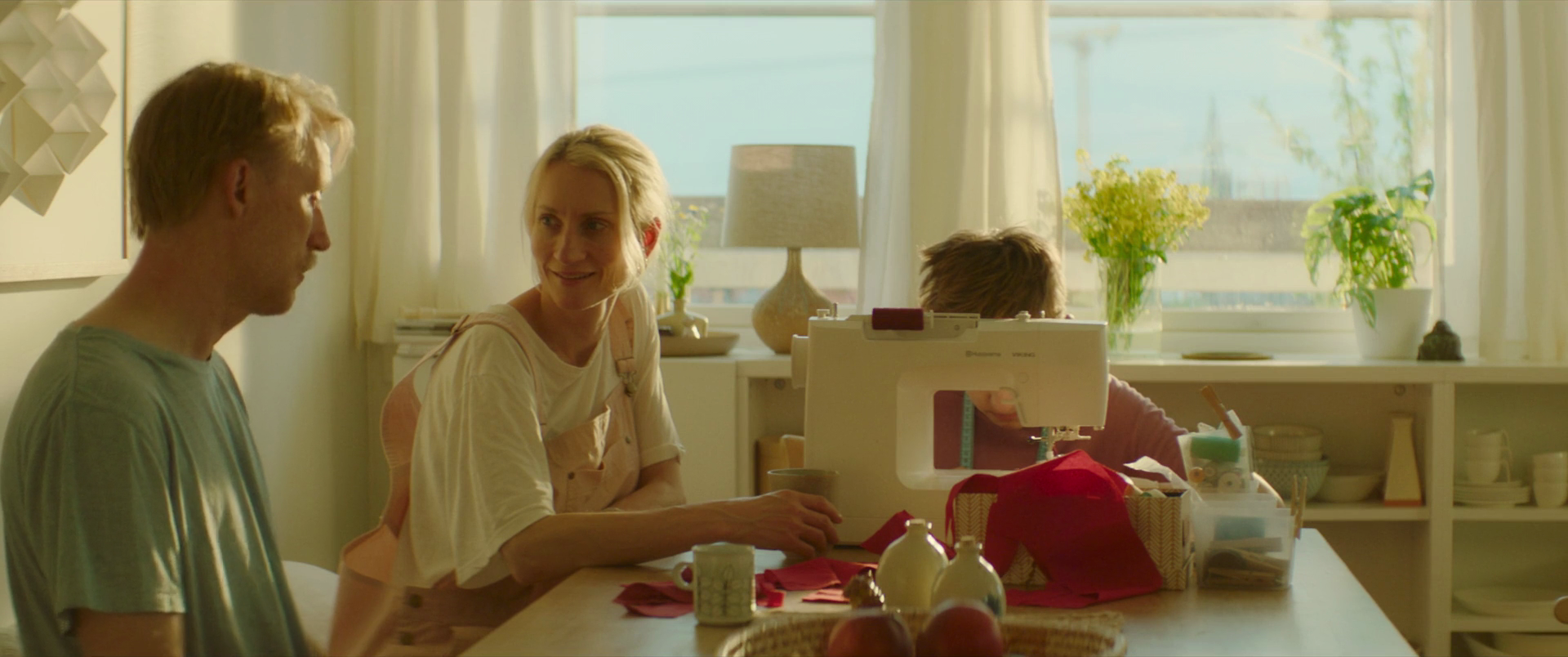
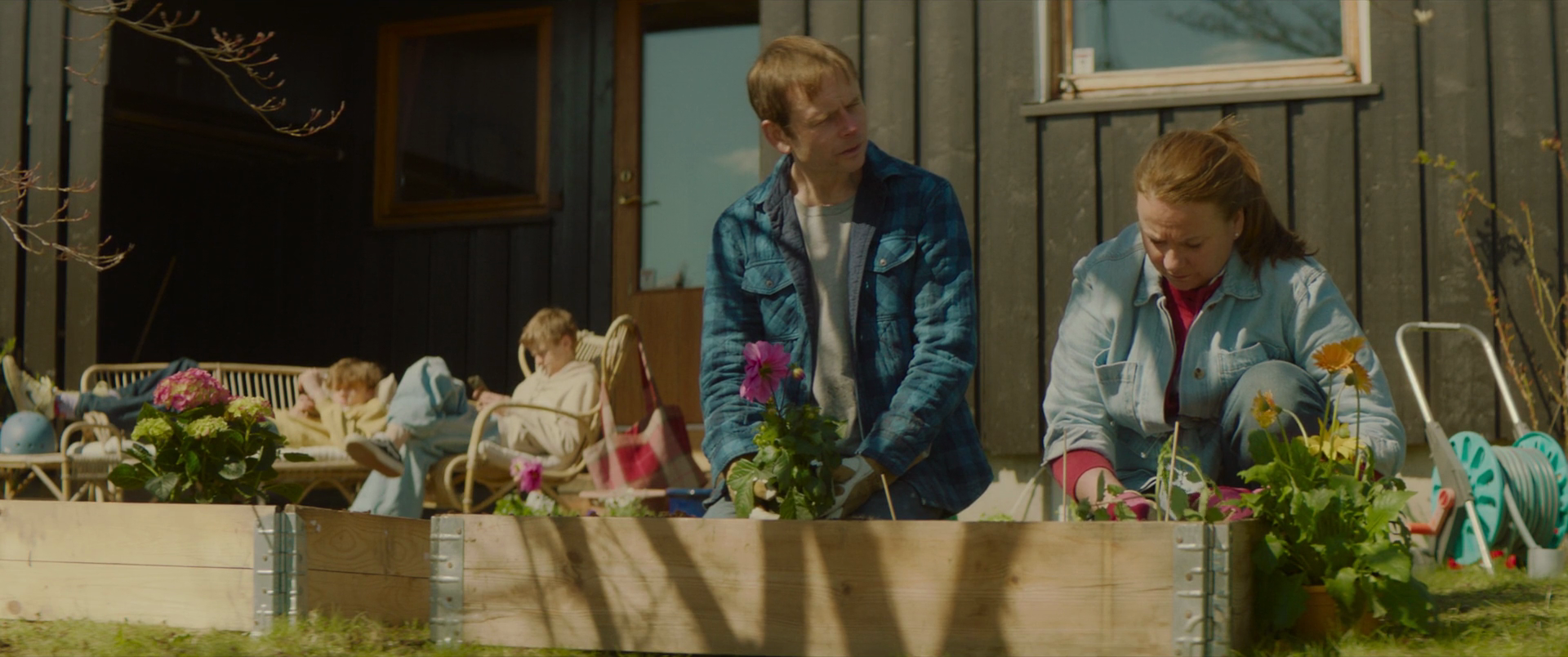
Images courtesy of Motlys.
To Haugerud's credit, Rohmer, too, loves to leave the predicaments of his characters up in the air as well, letting the ambiguity and indeterminacy of what these characters will do be filled in by us. Yet, the worst thing that can happen to one of the married characters in Sex is maybe getting divorced and being separated from their children. It's still fairly unlikely, but what makes Sex particularly alluring and admirable is how much it chooses to elide the typical literary critical distance of depicting troubled characters consistent with Rohmer and replaces it with optimistic kindness and patience. Haugerud opts to lean in and devises scenarios where we listen to these characters speak their mind openly without interruption or interjection; he is sincerely interested and empathetic to each and every word spoken as if each utterance functions as some form of declaration of individuality, as tangible brushstrokes amidst the vast canvas of secrecy and jealously orienting their positions contra to other people's perspectives of them.
Sex doesn't just orient its characters amongst the sea of words they say; it also orients them within the milieu of Oslo's rapid housing developments overlooking the winding expressways snaking around the towering apartment complexes. Much like John Ford and Michaelangelo Antonioni would treat landscapes, the developed Norwegian metropolis—representing the pinnacle of modern domestic living and high standards of quality of life—is understatedly backdropped amidst the social anxieties of every character trying to make sense of their sexual predicaments realising that other people still reluctantly cling to more familiar conservative values of monogamous fidelity dictating sexual desire. Though Norway may be economically flourishing, one begins to wonder if it is to the detriment of socially excluding those who pose a risk to the stability of the traditional nuclear family.
Whatever one makes of Sex's dialogue-saturated style, Haugerud will most likely continue to impart its gentle sensibilities for the remaining films in his Sex Dreams Love trilogy, gay sex and all 🙂
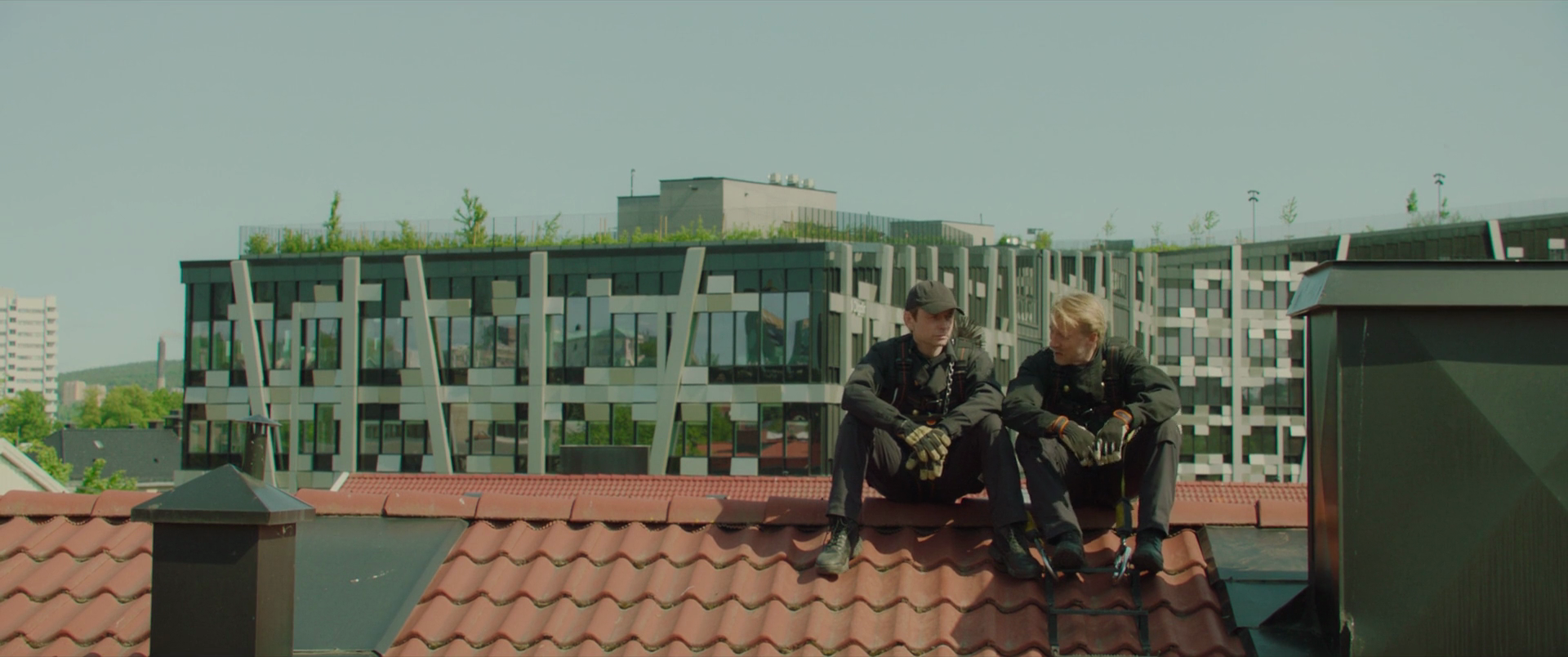
Sex | Trailer | NZIFF25
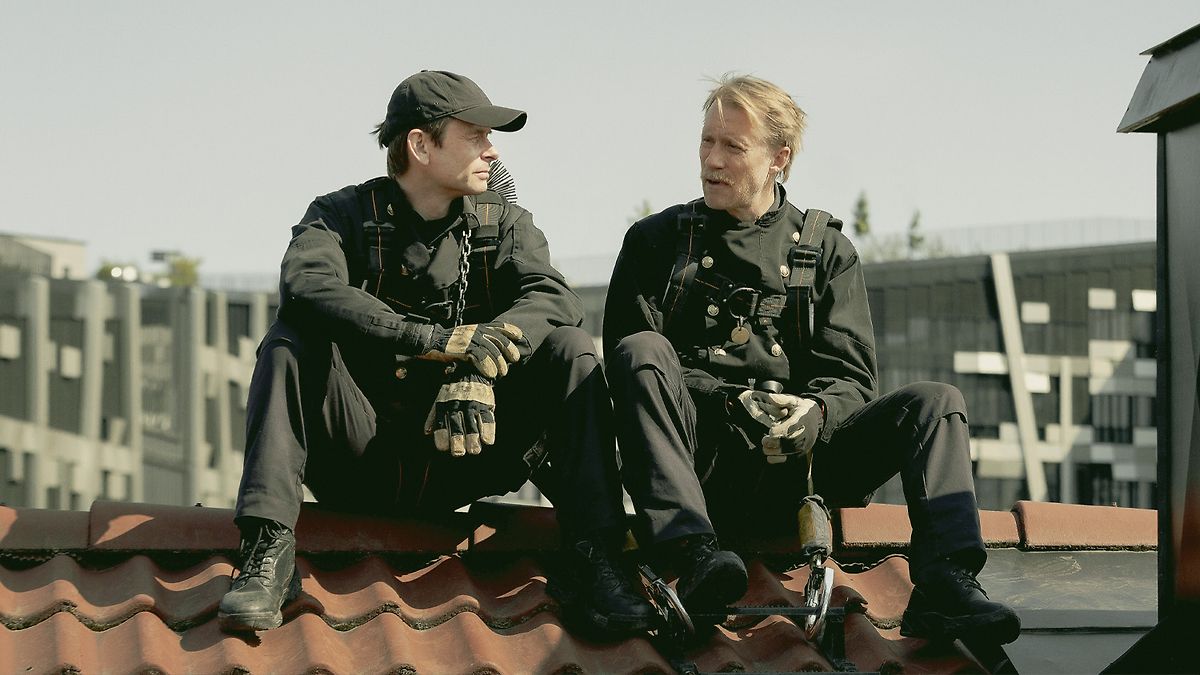
Follow our Letterboxd and Instagram to get live updates and reviews directly from our dedicated student team of film aficionados <3

Disclaimer
The views and opinions expressed in Craccum are those of individual contributors and do not necessarily reflect those of the editorial team or the publication as a whole. While we aim to ensure accuracy and fairness, Craccum cannot guarantee the complete reliability of all information presented and assumes no liability for errors or omissions.







